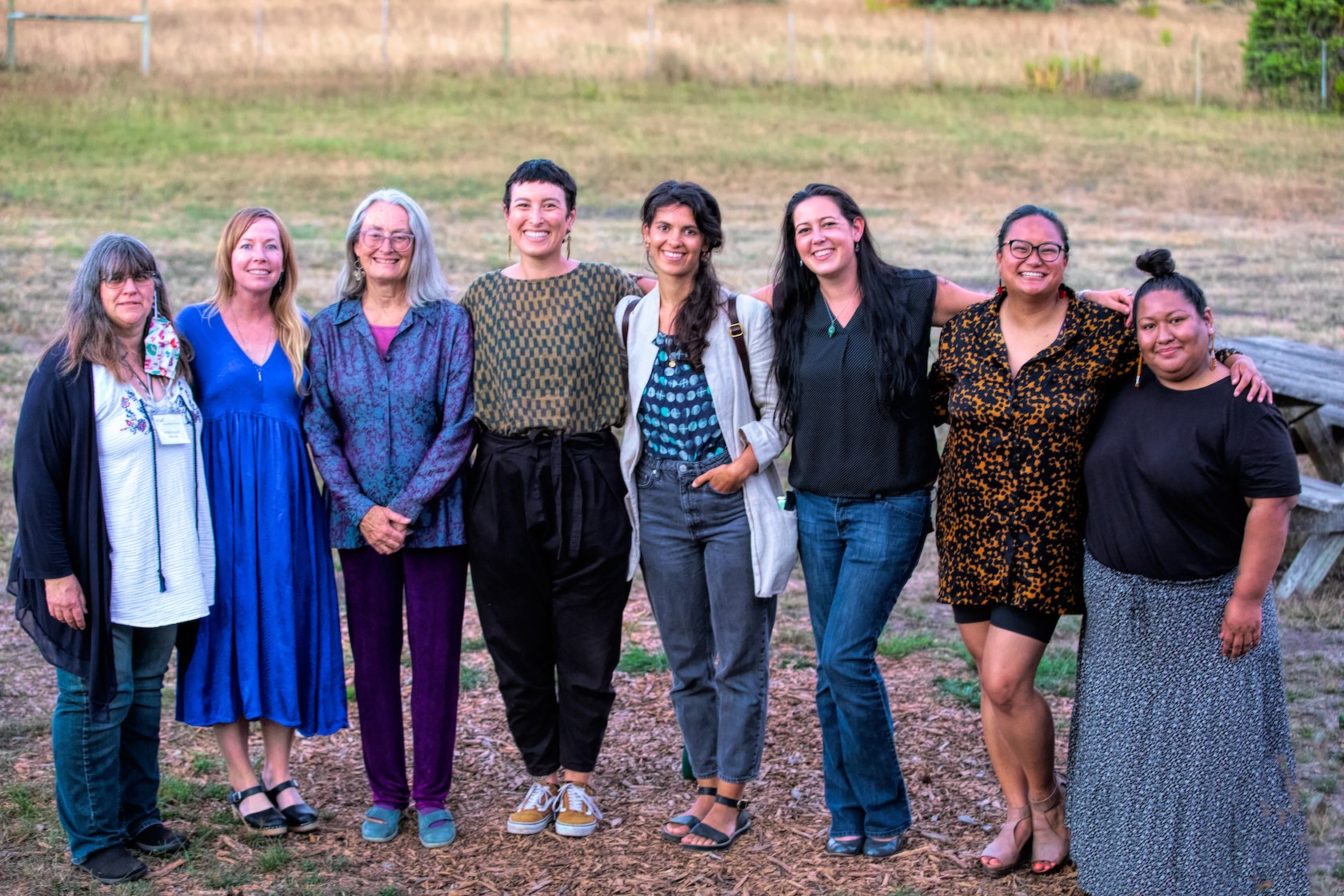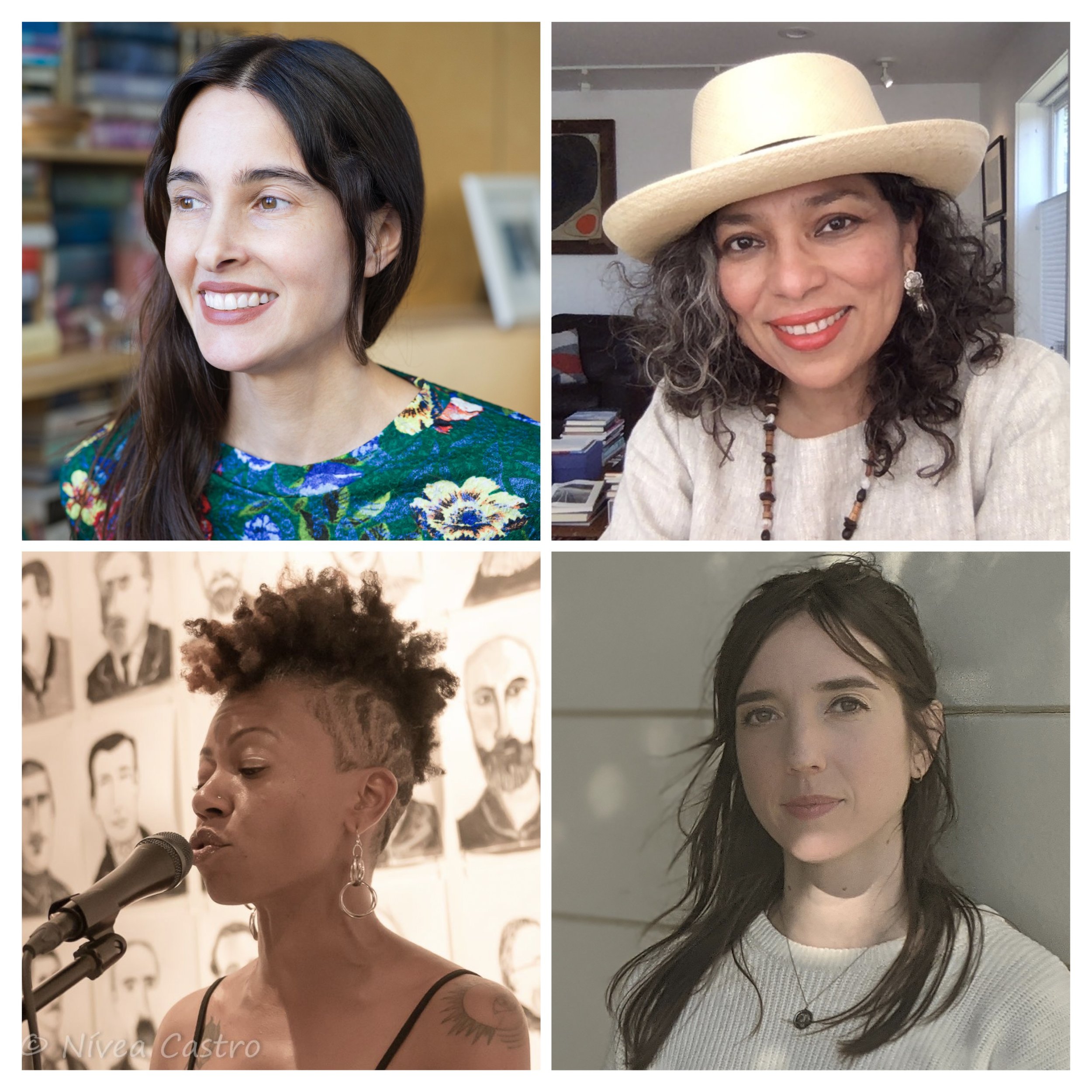This holiday season, we want to make sure you know how much we appreciate you. Thank you for being a part of our community!
Photo by Mimi Carroll
And thank you to the many generous supporters who have contributed this holiday season in support of our mission. If you haven’t yet made a contribution, you can still participate before the end of the year. In addition to giving by check or credit card, below are some other ways to show your support:
Shop with Amazon Smile
Select Mendocino Coast Writers’ Conference as your charity and you’ll support us every time you shop at Amazon.
Give the Gift of MCWC Seminars
You can buy one for $15 or all four for $50.
Write with Urgency: The Novel & The Memoir with Donna Freitas
Building Out a Writer’s Life with Kate Folk
Silence and the Imagination with Claudia Castro Luna
The Main Course: Poets Writing About Food Through With the Haibun with Anastacia-Renée
Buy Our Merchandise
Need a comfy sweatshirt or a mug for your hot chocolate this winter? Shop at our store for yourself or for gifts for the writers in your life.
Photo by Mimi Carroll
EXPLORE MATCHING GIFTS
Many companies offer matching gift programs which can help stretch your support. If your company qualifies, it can double or sometimes even triple your initial gift. Contact your Human Resources Department to find out if your company qualifies.
Photo by Mimi Carroll
Make an End-of-Year Donation
Thanks to our generous donors, we’re 64% of the way to our goal of raising $35,000! We’re working hard to continue our tradition in our 34th year for an in-person conference. Can you help us by making a year-end gift?
the MCWC 2023 SCHEDULE IS COMING SOON!
Scholarship and Master Class applications for the 2023 conference will open on January 15. Check back to our site then for details on how to apply.
Q&A with 2023 master class FACULTY, Ariel Gore
Ariel Gore is an award-winning novelist, memoirist, journalist, and editor. She is the founding editor/publisher of the American Alternative Press Award-winning magazine Hip Mama and edited Portland Queer, which won a 2011 LAMBDA Literary Award. Her memoir The End of Eve (Hawthorne Books) was described by Tom Spanbauer as "an act of poetry damn close to sublime." About her experimental novel/memoir We Were Witches (The Feminist Press), Lidia Yuknavitch said, “We Were Witches is one woman’s body refusing to become property, refusing to be overwritten by law or traditions . . . a triumphant body story. A singularly spectacular siren song.” Her most recent book, The Wayward Writer: Summon Your Power to Take Back Your Story, Liberate Yourself from Capitalism, and Publish Like a Superstar (Microcosm Publishing) is out now. Her other books include The Hip Mama Survival Guide (Hyperion), Atlas of the Human Heart (Seal Press), How to Become a Famous Writer Before You’re Dead (Three Rivers), The Traveling Death and Resurrection Show (HarperOne), Hexing the Patriarchy (Hachette), and Bluebird: Women and the New Psychology of Happiness (Farrar, Strauss, and Giroux).
We sat down with Ariel , who will be leading the 2023 Master Class and asked her a few questions.
What drew you to begin writing in your genre?
Desire & Resistance
I wanted to be myself and survive. I never felt like I could deal with having a normal job where I had to wear heels and smile at all the right times. Not for any longer than necessary, anyway. I did want a career—something I could nerd out on, an outlet more than a hobby. I wanted to be myself and survive.
I wanted to be a writer in the sense that I wanted to do every kind of writing—from novels to news reports to plays to whatever the lit star of the future would do—and I wanted to push feminist and anti-capitalist agendas and travel the world by train smoking cigarettes and wearing a tie when I felt like it but mostly just wearing what was next to my bed when I woke up. I wanted to be myself and survive.
I knew I wanted to publish, but independent publishing appealed to me just as much as collaborative and commercial publishing, so the markets felt secondary. I wanted to be a writer and survive. I wanted to be the architect of my own survival.
(Do you see what I’m doing here? I keep reaching back into a previous sentence and cutting a clipping from it and planting that clipping to grow the next sentence forward. I keep planting it forward. That’s all I’m doing.)
When I dropped out of high school in Northern California and headed to China in the mid-1980s, I put “writer” as my occupation on the visa form. A fellow traveler in the consulate in then-British Hong Kong nudged me and whispered, “Put student. Governments don’t like writers.”
I changed it. I wanted to be a writer and survive. But I already knew I also wanted to be a writer in the sense that I wanted governments not to like me. I wanted to be a writer in the sense that I wanted liberation for myself and all people.
I wanted to be myself and survive.
I wanted bay windows and a fireplace.
I soon learned that one must be strategic and diligent to achieve the bohemian lifestyle. Even then, capitalism puts up a fight. No matter. I was in this for the long haul. I would be myself and survive.
(If we think of a story as a series of tensions between desire and resistance, a series of scenes animating that tension in an ever-escalating or ever-deepening pattern, then reaching back to clip and replant becomes a way to allow the pattern of the language itself to imitate the central pattern of the desire and resistance.)
Try this:
Start with the words “I wanted . . . ” and tell the story from there. What does the narrator want and what tells them or shows them they can’t or shouldn’t have it? Let the story become a forward-moving pendulum that swings between “yes, maybe you can have what you want” and “no, probably you can’t have that.” Whenever you get stuck, re-read your previous sentences and clip from them to regenerate. Replant to grow the next sentence.
What patterns, rituals or routines are crucial to your writing practice?
I love numbers. I like word counts and page counts and my own invented deadlines that I adhere to as if they're universe-sent. Like most writers, I love it when the inspiration just ARRIVES, like something mystical, but I have found that I can only create the conditions for that magic with sit-your-butt-in-the-chair daily practice.
Who/what are your key influences and sources of inspiration?
Audre Lorde, Adrian Rich, Diane DiPrima, Ntozake Shange, Haruki Murakami, noir film, my teenage job at a art movie house in the Bay Area, my kids, and the anxiety inside me that only writing can seem to calm.
What do you love most about teaching writing?
I love reminding emerging writers that every aspect of their imagination has a place in literature, every aspect of their experience. I love that moment when we ask, together, wait, can we do this, and then we laugh and say YES OF COURSE!
I also love reminding emerging writers that everyone’s first draft is wonky.
I’m all for publishing before you’re ready, but you don’t have to publish everything you write and you certainly don’t have to publish early drafts of everything you write.
You’re going to have to learn discernment. It’s okay if this takes time.
Listening to NPR a few years back, they interviewed Alice Munro, you know, the Nobel Prize winner, and they asked her how many drafts she did and she said 80 or 100.
I thought about that and I figured I do about 40 or 50 drafts of everything I write if you count all the different ways I draft.
And that made me feel good, like maybe the only difference between me and Alice Munro was another 40 or 50 drafts.
What are you hoping participants of your MCWC workshop will get out of the time they spend with you?
There’s nothing wrong with art that tracks “The Hero’s Journey,” but our experiences are so much more diverse, relational, non-heroic, embodied, anti-colonial, and magical. Let’s make new models for our stories—models and experiments that serve the true shapes of our experiences. Every writer has heard of Chekov’s gun, the one that, if it appears in the first chapter absolutely must go off in the second or third chapter, but I am more of a disciple of Maxine Hong Kingston who said, “let’s find another way to unload that gun.” Let’s get together, rewrite the myths we’ve been handed when they don’t serve us, and find un-tragic ways to unload Kingston’s gun.
Also! Everyone can publish! Let’s DO THIS.
Got news?
Send it to us at: news@mcwc.org.
We hope your holiday season is full of health and happiness. We’ll see you in 2023!
From,
All of us at MCWC







